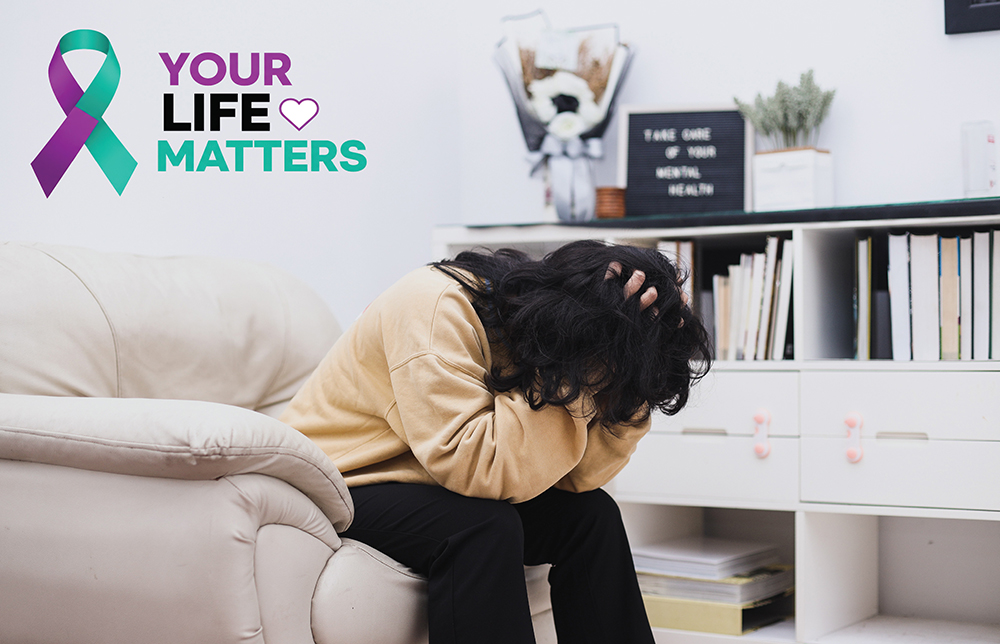
You’re Not Alone: Harris County Offers Year-Round Mental Health Support Amid Rising Suicide Concerns Nationwide
This September, communities across the country are observing Suicide Prevention Month, a time dedicated to raising awareness, fostering connection, and ensuring that no one feels they have to face mental health struggles alone. In Harris County, local public health efforts are helping residents access free mental and emotional support, especially during times of distress or crisis.
According to the Centers for Disease Control and Prevention (CDC), suicide is the 11th leading cause of death in the United States, with nearly 50,000 lives lost in 2022 alone. Beyond the numbers are families, friends, and neighborhoods deeply affected—grieving, healing, and in many cases, searching for answers.
The American Foundation for Suicide Prevention (AFSP) emphasizes that suicide is rarely caused by a single factor. Instead, it often results from a complex interplay of mental health conditions, social stressors, and systemic issues—many of which are preventable with the right support and intervention.
Suicide Risk and Its Far-Reaching Impact
The CDC’s Suicide Prevention Resource Center notes that several risk factors are linked to higher rates of suicidal thoughts and behaviors, including:
- Economic hardship, such as job loss or unstable housing
- Social isolation, especially following major life changes or loss
- Lack of access to mental health care, particularly in underserved communities
- Substance misuse or chronic mental health conditions
- Historical trauma and systemic inequities, including racial discrimination and stigma around seeking help
These challenges are not always visible—and neither is the emotional pain that may accompany them. According to the National Alliance on Mental Illness (NAMI), one of the most dangerous myths about suicide is that it only affects people who appear visibly sad. In truth, people struggling with suicidal thoughts often work hard to mask their pain.
Mobile Sidebar Ad
Know the Warning Signs
Being aware of the signs can make a difference. The 988 Suicide & Crisis Lifeline shares these common indicators that someone might be at risk:
- Talking about wanting to die or expressing feelings of hopelessness
- Withdrawing from friends or usual activities
- Sudden changes in mood or behavior
- Increased use of drugs or alcohol
- Saying goodbye or giving away important belongings
Recognizing these signs in yourself or someone else is a critical first step. Support is available, and early intervention can save lives.
Suicide's Impact on Youth and Young Adults
While suicide affects people of all ages, it is now the second leading cause of death among young people between the ages of 10 and 24, according to the CDC. National surveys show that nearly 1 in 7 high school students has seriously considered suicide in the past year, with even higher rates reported among LGBTQ+ youth and those who face bullying or discrimination.
The National Institute of Mental Health notes that many young people who are struggling never receive a formal diagnosis—and stigma often keeps them from reaching out. Life transitions, academic pressure, relationship changes, or feeling excluded can heighten emotional distress.
Protective factors—like supportive peers, understanding adults, and access to mental health care—can make a life-saving difference. This is why early intervention, inclusive environments, and community support are critical for youth mental health.
Free Local Mental Health Support in Harris County
In response to growing mental health needs across the region, Harris County Public Health (HCPH) now offers free Behavioral Health Services for eligible residents. These services include:
- One-on-one confidential counseling
- Substance use support
- Psychiatric care and case management
- Virtual and in-person appointments across the county
Anyone interested can call 832-927-1335 or email behavioralhealth@phs.hctx.net to learn more. Additional details are available at the Behavioral Health Services website.
Maternal Mental Health Matters Too
For birthing people and families dealing with Perinatal Mood and Anxiety Disorders (PMADs)—including postpartum depression, anxiety, PTSD, or psychosis—HCPH also offers Maternal Mental Health Services. According to Postpartum Support International, up to 1 in 5 mothers experience a PMAD, yet many go untreated due to stigma or lack of access.
These services provide early screening, specialized counseling, and support resources tailored for maternal mental wellness. For more information, residents can call 832-927-1335 or email MaternalMentHlthPrgm@phs.hctx.net.
Mobile Sidebar Ad
National Resources Available to All
In addition to local programs, national organizations offer round-the-clock support:
-
988 Suicide & Crisis Lifeline
-
Call or text 988
-
Visit 988lifeline.org
-
-
SAMHSA’s National Helpline
-
Call 1-800-662-HELP for substance use or mental health assistance
- Visit samhsa.gov
-
-
NAMI HelpLine
-
Call 1-800-950-NAMI
-
Text “HELPLINE” to 62640
-
These services are free, confidential, and available to anyone in need.
Building a Safer, More Supportive Community
According to the Suicide Prevention Resource Center, strengthening protective factors—like access to quality care, supportive relationships, and connected communities—can significantly reduce the risk of suicide.
Residents can help by:
- Checking in regularly with loved ones
- Encouraging others to seek help without shame
- Supporting local mental health initiatives and policies that expand access to care
- Practicing self-care and healthy coping strategies
While suicide can feel like an overwhelming and isolating topic, prevention is possible. Small conversations can lead to life-saving connections. Support can be the difference between despair and hope.
If you or someone you know is struggling, reach out. Help is here—today, tomorrow, and whenever you need it.
Stay with My Neighborhood News for more resources and health updates throughout Harris County.
 Tiffany Krenek has been on the My Neighborhood News team since August 2021. She is passionate about curating and sharing content that enriches the lives of our readers in a personal, meaningful way. A loving mother and wife, Tiffany and her family live in the West Houston/Cypress region.
Tiffany Krenek has been on the My Neighborhood News team since August 2021. She is passionate about curating and sharing content that enriches the lives of our readers in a personal, meaningful way. A loving mother and wife, Tiffany and her family live in the West Houston/Cypress region.

